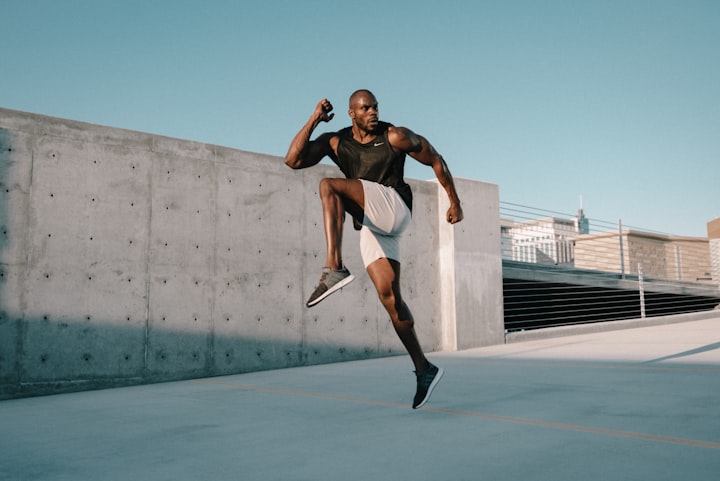4 Ways to Ensure Your Partner Feels Free
What they actually mean when they say to “love in such a way that the person you love feels free,” and strategies you can use to achieve this.

The well known Vietnamese monk, Thich Nhat Hanh, famously said,
“You must love in such a way that the person you love feels free.”
It is such a profound statement, and yet, I never understood what he actually meant by it.
I always recognized that this was important; if you love someone, they should feel free. They should never feel trapped or suffocated. Of course this is important. But how do you do that? What does this look like in practice?
For years I have pondered this question.
I read Thich Nhat Hanh’s books, and I still couldn’t figure out what he meant. It haunted me; what if I wasn’t loving right? But after reading numerous works by various people and diving deep into some self-discovery, I now have a better idea of what this actually looks like in practice.
1. Awareness of myself
The first step was being aware of what I bring to the relationship. This includes my insecurities, my strengths and weaknesses, my baggage, and how I am wired.
A huge part of this was figuring out that I am anxiously attached. Attachment is essentially how we relate to others, whether a romantic partner or someone else. John Bowlby is famously known for discovering attachment and developing the attachment theory, however Leslie Greenberg and Sue Johnson began applying it to adult relationships in the 1980s. Put very simply, there are 4 attachment styles: anxious, dismissive avoidant, fearful avoidant, and secure. Securely attached people don’t struggle to give and accept love, while the other 3 styles experience challenges. I recommend reading Attached by Dr. Amir Levine and Rachel Heller if you want to learn more about attachment, and Hold Me Tight by Sue Johnson if you want to learn how to navigate attachment in your own relationship.
“We either become demanding and clinging in an effort to draw comfort and reassurance from our partner, or we withdraw and detach in an attempt to soothe and protect ourselves.” — Dr. Sue Johnson, in Hold Me Tight.
I am definitely the first one. And neither is right or wrong, but being able to recognise when I am clinging enables me to stop before I push my partner even further away. All it took was an awareness of how I work and how I react to situations, and I was able to release my partner from feeling pressured when I become clingy.
Even just having an awareness of how we work and why we are who we are can help immensely. Knowing who you are is the first step to loving someone in a way that makes them feel free.
2. Awareness of my partner
Similar to the idea of having a better awareness of yourself, you must also be aware of what your partner brings to the relationship. Again this includes their insecurities, strengths and weaknesses, baggage, and an understanding of how they are wired.
Everyone has history. Everyone will bring both strengths and weaknesses to the relationship, and while some of these can be changed to a degree, a lot of them are probably not going to change. Being aware of these and how they affect your relationship is very important.
Figuring out my partner’s attachment style was extremely helpful. I could understand why she reacted in particular ways and this understanding led to acceptance. Accepting that this is how she is wired, and not trying to change that but rather to hold space for her, I was able to change my reactions in situations. This creates a sense of freedom where she feels less pressured to react in a certain way, and rather can feel supported no matter how she is feeling.
3. Holding space
The ability to hold space for your partner is huge. But what does this mean?
Holding space is the ability to sit with your partner, whether physically, emotionally, or both, with whatever they are experiencing. It is the act of being in the moment with them, whatever this moment looks like, and really paying attention.
This is an incredibly powerful action in a relationship.
Being with your partner, and truly seeing them in this moment without judgement or pressure, will allow you to hold space for them. You’re not reacting, you’re not judging anything as either good nor bad.
Holding space is an important concept to keep in mind during a fight or argument. The ability to meet your partner where they are, to pay attention with no judgement, will allow you to approach the situation in a calm and clear headspace. You will also be more receptive and supportive towards your partner, and this will be huge for them. This will cultivate an environment in which your partner feels safe to feel a certain way or to have a certain experience.
It may help to recognise that arguments are often an attempt for reconnection with our partner. Dr. Sue Johnson explains:
“The anger, the criticism, the demands, are really cries to their lovers, calls to stir their hearts, to draw their mates back in emotionally and reestablish a sense of safe connection.”
Being able to understand that this is at the core of most arguments may make it easier for you to react with love and acceptance, and to hold space for your partner. This will make it a whole lot easier to reestablish a safe connection.
Take a breath, relax, and physically turn toward your partner. Make and sustain eye contact. Listen.
No matter what is brought up or the emotions your partner is experiencing, always respond with love.
4. Finding myself and creating my dream life
Finding and creating myself away from my relationship helped enormously. Every day I worked on myself and creating the life I want, with my partner by my side. A huge part of this was developing a morning routine that gave me space to think about what I want in life.
As I cultivated the life I wanted, I found that I was much less reliant on my partner for happiness. Instead, I had incorporated so much into my life that made me happy that I was able to be happy completely on my own.
This is important in a relationship; your partner should never feel like they are responsible for your happiness. They can add to it, of course, but the pressure to make you happy will never allow them to feel free.
An important concept this allowed me to understand was that you should never need to be with someone, rather you should want to be with them. Needing to be with someone is exhausting for both of you, and neither of you will feel free. When you design your dream life and work towards becoming who you want to be, you won’t need to be with someone anymore. You’ll be able to see more clearly that you are just fine on your own because you have all these things and people around you that support you and make you happy.
Following these 4 strategies enabled me to become a better partner; someone that loves my partner in such a way that she feels free. I went through a lot of self-discovery in the process, but it was worth it for the end result.
I found that in a relationship, it’s important to:
- Be aware of who you are and what you bring to the relationship,
- Be aware of who your partner is and what they bring to the relationship,
- Hold space for your partner by always meeting them where they are and responding with support and love,
- And to create the life that you want to live by continually engaging in self-development.
About the Creator
Ashley Richmond
My mission is to make health simple. I write about daily practices and routines to optimize health. Small changes can have a big impact, and I want to help others take advantage of this.
Free newsletter: https://momentumhabits.substack.com/






Comments
There are no comments for this story
Be the first to respond and start the conversation.